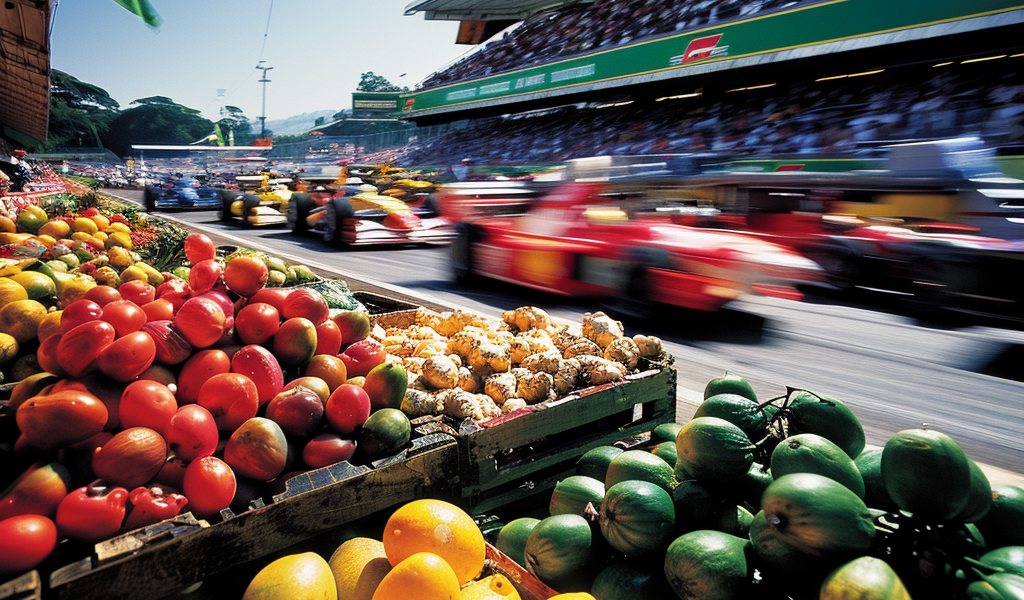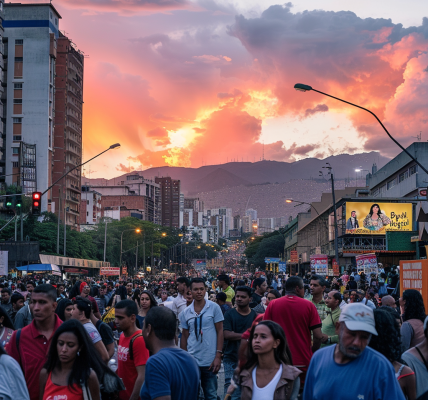In a remarkable logistical operation, Brazilian fruits have found a unique transportation route through the recent Formula 1 São Paulo Grand Prix. As racing teams and their equipment landed at the Interlagos Circuit, an unexpected cargo operation was simultaneously taking place at Viracopos International Airport in Campinas, São Paulo. The aircraft, primarily designated for the transport of racing cars and equipment, also carried a significant load of fresh Brazilian fruits destined for various European markets.
The shipment included a diverse assortment of fruits such as ginger, lemons, mangoes, and papayas. These products were first flown to Amsterdam, where they would then be distributed throughout Europe. In addition to the primary shipment, extra batches of papayas and mangoes were sent to Lisbon, Portugal, and Paris, France, respectively, utilizing commercial passenger flights. The total weight of the fruit exported during this operation reached an impressive 110,601 kilograms.
This successful operation was overseen by the Agricultural Surveillance System (Vigiagro), which operates under the Ministry of Agriculture and Livestock’s Agricultural Defense Secretariat. Vigiagro plays a critical role in ensuring that agricultural products being exported or imported meet strict biosecurity standards. Their primary objective is to prevent the introduction of pests and diseases that could threaten Brazilian agriculture.
The significance of this operation extends beyond mere logistics. It highlights Brazil’s strategic position as a leading exporter of tropical fruits to international markets. With the growing demand for fresh produce in Europe, Brazilian farmers are keen to capitalize on this opportunity, ensuring that their products reach consumers in peak condition.
In addition to this successful operation, the Brazilian agricultural sector has been making headlines with other notable developments. For instance, reports indicate that farmers have planted an additional 5,000 lemon trees over the past year, with plans to expand orange production as well. This expansion reflects a broader trend of increasing investment in fruit cultivation, aimed at meeting both domestic and international demand.
However, the agricultural landscape in Brazil is not without its challenges. Recent discussions have arisen concerning the impact of weather events on crop yields. For example, heavy snowfall has affected flowering apple orchards in the Free State region, raising concerns about potential losses in production. Additionally, the ongoing debate regarding a ban on South African citrus and vegetables by neighboring countries Namibia and Botswana has sparked discussions about trade policies and their implications for regional agriculture.
Furthermore, the integrity of product labeling has come under scrutiny. In Singapore, durian sellers have faced accusations of mislabeling the variants and origins of their products, leading to concerns over authenticity. Such issues underscore the importance of transparency and trust in the global produce market.
As the agricultural sector continues to evolve, staying informed about market trends and challenges is crucial for stakeholders. The interplay between logistics, production, and regulatory frameworks will shape the future of fruit exports from Brazil and beyond.
With these developments unfolding, industry professionals and consumers alike are encouraged to keep abreast of the latest news and insights. The dynamic nature of the global agricultural market promises ongoing opportunities and challenges that will require careful navigation.





